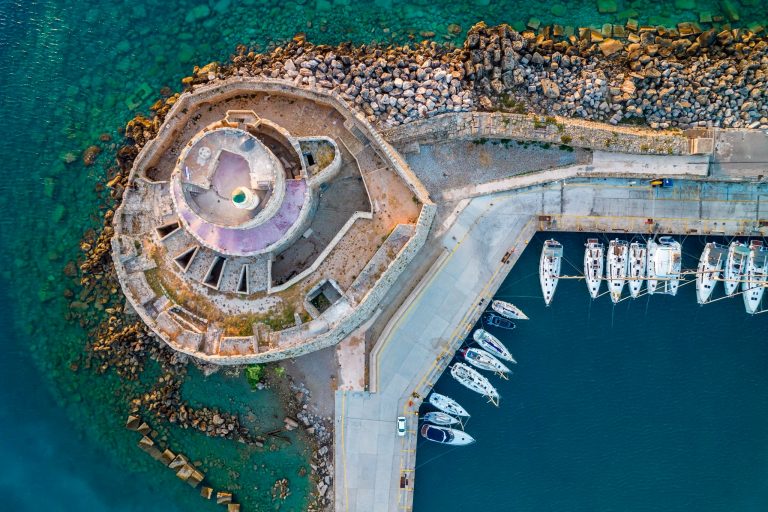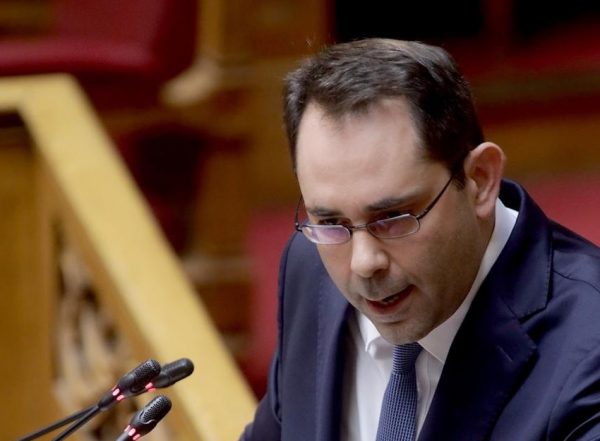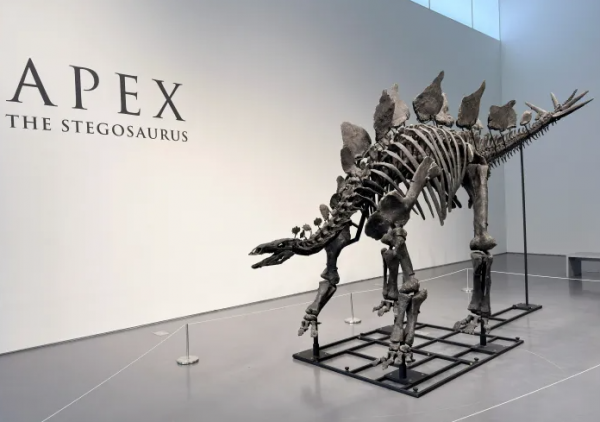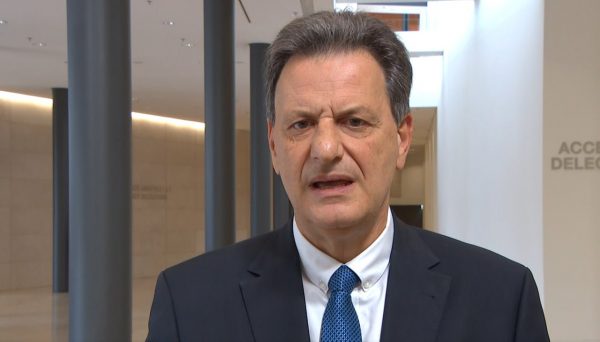
Large-scale European research projects that attempt to show the way to the widespread use of new technologies for highlighting and promoting cultural heritage monuments and protecting them from the effects of climate change are underway at the Research University Institute of Communication and Computer Systems ( EPISEY) of the National Technical University of Athens – NTUA.
A series of innovative technologies and methods, digitization, artificial intelligence, machine learning, data analysis, citizen science have proven to be important tools in our effort to preserve cultural monuments, which today – more than ever before – they are threatened by the effects of climate change, natural disasters and environmental pollution, as the Institute points out.
HYPERION: Shield against geoclimatic risks
Having gone through 4 years of successful research under the coordination of EPISEY, the ambitious European project HYPERION has recently presented its results. The project developed a decision support system to improve the resilience and sustainable restoration of historic sites in order to address the effects of climate change and extreme natural events on monuments.
The project leveraged existing tools, innovative technologies, climate models, structural analysis techniques, Copernicus services, terrestrial and satellite imagery and developed mathematical models, to create an innovative digital platform that extracts and processes data from the monuments, and enables the cultural institutions and public authorities to be informed in real time about the risks that threaten monuments and archaeological sites, while it also provides models for predicting deterioration from weather effects.
The platform was successfully tested and evaluated in real conditions in four European cities, Granada (Spain), Venice (Italy), Tonsberg (Norway) and the medieval city of Rhodes (Greece). Thus, we saw in the medieval city of Rhodes, a UNESCO world cultural heritage monument whose preservation is of the utmost importance, that specialized sensors were installed in order to collect data on the multiple climate threats facing the island such as floods, storms, fires , strong winds, earthquakes, precipitation, heat waves, etc.
The data from the four pilots fed the platform, an important tool that can today guide related decisions and actions aimed at the preservation and sustainable reconstruction of these historical areas.
As the road to the sustainability of world heritage is an international affair, the project consortium was formed by 18 partners from eight different countries, including universities, research institutes, companies and various end users such as cultural institutions and municipal authorities. On the Greek side, EPISEY was coordinated, and NTUA, the Aristotle University of Thessaloniki, the Municipality of Rhodes, the Dodecanese Antiquities Tax Office and the Intercultural Euro-Mediterranean Center for UNESCO participated.
Citizens are the guardians of cultural heritage
Among the innovative results of the project, the application developed by the NTUA’s I-SENSE research group stands out, and aims to contribute to the protection of monuments by utilizing the possibilities offered by citizen science. It is an innovative application for smart mobile devices (smartphone application for android devices) that invites citizens to identify damage and threats to cultural monuments in their area themselves and to upload real-time details to the application (e.g. photos of damage , geographic data, etc.).
The result is a valuable, open and continuously updated database and information on the state of the monuments, based on which the authorities will be able to plan the appropriate interventions and take action to restore the damages. The application is available on the Google play store by clicking here and invites everyone to become guardians of our cultural heritage!
Launch for the THETIDA project
EPISEY leverages the accumulated know-how in the field with yet another project which is in its infancy. THETIDA draws our attention to coastal and underwater heritage which is also threatened by the effects of climate change, natural disasters and of course rampant environmental pollution.
In the project which held an official opening event on June 29 and 30, 2023 in Vouliagmeni, 17 partners from 8 different countries participate, coordinated by EPISEY. The event was opened by Dr. Angelos Amditis, Director of Research & Development of EPISEY noting characteristically “Adapting to climate change and geoclimatic risks is an absolutely necessary process to save the coastal and underwater heritage that is currently threatened by both man-made and natural factors such as salinity, waves and water movement, algae, sand movements, coastal erosion, etc. Especially in Greece, in a country with great coastal and underwater wealth, its preservation is imperative and requires international action. The state-of-the-art technologies and pioneering methods that will be utilized at THETIDA are key to this collaborative effort, and the work ahead is full of challenges.”
Data collection sensors will be installed both underwater and onshore in 7 pilot test areas: Italy, the Netherlands, Norway, Portugal, Cyprus and Greece. Additional data will come from satellite imaging, smart buoys, autonomous underwater vehicles, surface vessel sensors, wearable devices and micro-meteorological stations, as well as crowd sourcing applications.
Based on the evidence provided by the data analysis and guided by the resulting predictive models, the THETIDA project will develop a Decision Support System that will provide appropriate adaptation and mitigation strategies for each area of cultural interest. At the same time, the project aims to involve, mobilize and sensitize the local communities in the process of safeguarding the coastal heritage, making citizens helpers in this project. Augmented and virtual reality tools (AR and VR), applications that empower citizen participation and living labs will be among its results.
Latest News

DM Dendias: We talk With Turkey But We Always Bring Up Their Unacceptable Positions
Second and last day of closely watched conference, entitled 'Metapolitefsi 1974-2024: 50 Years of Greek Foreign Policy', also included appearances by PM Mitsotakis, Ex-PM Tsipras and PASOK leader Nikos Androulakis, among others

Rhodes Airport Tops Fraport Greece’s Regional Airports in 2024 Performance
According to Fraport's data, more than 35 million passengers (specifically 35.2 million) were handled by Fraport-managed airports during the 11 months.

European Central Bank Cuts Interest Rates by 25 Basis Points
It is the fourth cut of interest rates by Europe’s central bank, a move expected by the markets and financial analysts leading to the rate settling at 3%.

Airbnb: New Measures Add €600 in Extra Costs for Property Owners
Property managers face an immediate administrative fine of 5,000 euros if access to the inspected property is denied or any of the specified requirements are not met.

Economist: Greece Included in the Best Performing Economies in 2024
Meanwhile, Northern European countries disappoint, with sluggish performances from the United Kingdom and Germany.

EasyJet Expands Its Routes from Athens
The airline’s two new routes will be to London Luton and Alicante and they will commence in summer 2025.

Capital Link Forum Highlights Greece’s Economic Resurgence; Honors BoG Gov Stournaras
Capital Link Hellenic Leadership Award recipient, Bank of Greece Gov. Yannis Stournaras, an ex-FinMin, was lauded for his pivotal role during Greece’s economic recovery

Tourist Spending in Greece Up by 14%, Visa Card Analysis Shows
Greece’s capital Athens emerged as the most popular destination, recording a 17% increase in transactions with Visa cards, surpassing even the cosmopolitan island of Mykonos.

Inflation in Greece Unchanged at 2.4% in Nov. 2024
The general consumer price index (CPI) posted a 0.4% decrease in November compared to the previous month

2024 Christmas Holidays: Extended Shop Hours Schedule
The 2024 Christmas Holidays extended shop hours schedule commences on Thursday, December 12 and runs until the end of the year.


![Φυσικό αέριο: Δυναμικό come back του LNG στην Ελλάδα [γραφήματα]](https://www.ot.gr/wp-content/uploads/2023/01/OT_naturalgas-90x90.jpeg)












![Fraport: Πάνω από 35 εκατ. επιβάτες στα αεροδρόμια το 11μηνο – Πτώση στη Μύκονο [πίνακας]](https://www.ot.gr/wp-content/uploads/2022/06/fraport-90x90.jpg)


























 Αριθμός Πιστοποίησης Μ.Η.Τ.232433
Αριθμός Πιστοποίησης Μ.Η.Τ.232433